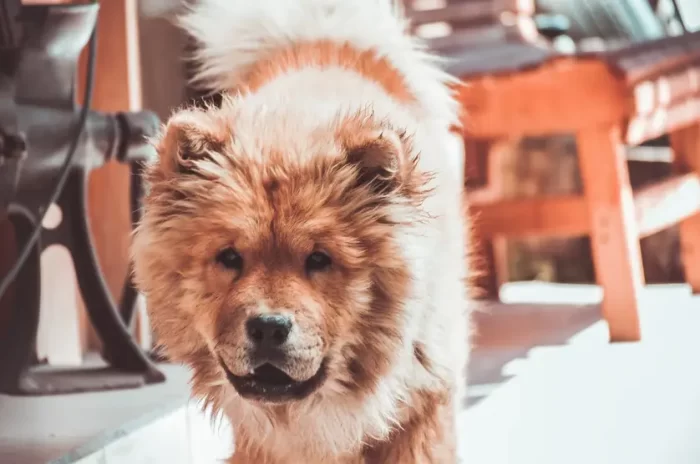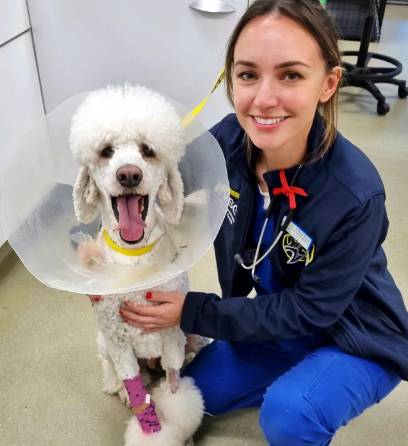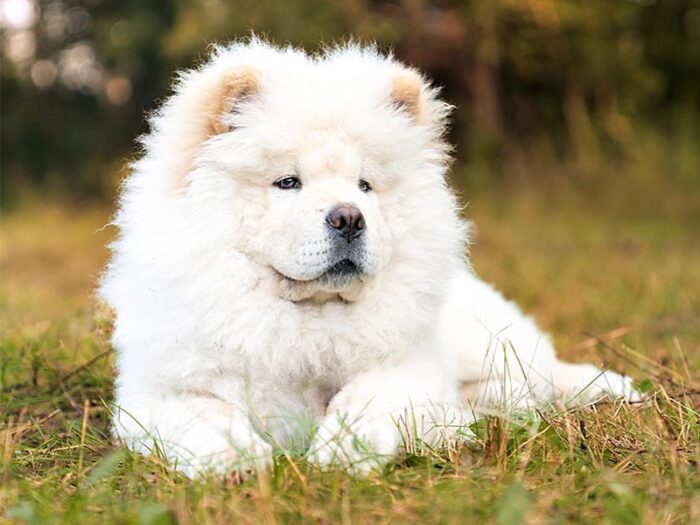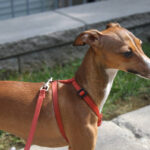The Chow Chow is an ancient dog breed that originated in China over 2,000 years ago. They were originally bred to be guard dogs and have retained that protective, territorial instinct even now as companion dogs. Chow Chows can be very loving and devoted pets, but their tendency to guard their territory can become problematic if not properly managed. In this article we talk about How to Handle the Territorial Behavior of Chows Chows.
Table of Contents
Understanding Chow Chow Territorial Behavior

Chow Chows have strong territorial instincts and a desire to protect their family and property. This territorial behavior stems from the breed’s genetic history as guard dogs in China. Some key things to understand about Chow Chow territorialism include:
- They view their family and home as their territory – Chow Chows have a strong instinct to defend and guard what they see as belonging to them or under their protection. This includes both people and places.
- It often emerges around 2 years old – Chow puppies may show some initial protectiveness, but territorial behavior tends to really kick in around age 2 when the dog reaches full mental and physical maturity.
- It’s a natural trait of the breed – This behavior is hardwired into the breed’s genes – it’s not a behavioral problem or training issue. Chow Chows are simply very territorial dogs by nature.
- Both male and female Chows can be territorial – While territorial aggression is seen more often in males of many breeds, it occurs equally in both male and female Chow Chows.
Signs of Chow Chow Territorial Behavior
There are several common signs that indicate your Chow Chow is starting to show territorial behavior:
- Aggression toward strangers – This includes barking, growling, lunging, or snapping when unfamiliar people approach the door, yard, car, or out on walks.
- Aggression toward unfamiliar dogs – Chows can be dog aggressive in general, but don’t tolerate unknown dogs entering areas they guard. Fights often occur if a loose, unfamiliar dog gets into a Chow’s yard.
- Marking behavior – Territorial Chows feel the need to mark their turf with urine, especially around the perimeter of their property.
- Excessive barking – Chow Chows also loudly sound the alarm when they spot any intruders approaching their home or yard. The bark serves as both a warning signal and a deterrent.
- Guarding toys, food or resting areas – Chows may snap, growl or bite when approached while eating, playing with a toy, or resting in their crate or bed. They view these items and spaces as valuable resources to guard.
Tips for Managing Chow Chow Territorial Behavior
Territorial behavior is deeply ingrained in the Chow Chow’s genetic makeup, so it’s unrealistic to expect them not to exhibit some protectiveness and guarding tendencies. But there are ways to manage territorial aggression appropriately:
- Socialize Extensively From Puppyhood
Early and extensive socialization makes a big difference in helping Chows feel less threatened by new people, animals and environments as adults. Expose pups to a wide variety of sights, sounds, people and other dogs starting at 7-8 weeks old. Reward calm, friendly behavior during socialization.
- Use Obedience Training
Obedience training is not just for teaching commands – it also establishes you as the Chow’s leader and helps them look to you for direction when feeling territorial. Working on skills like “watch me”, “leave it” and “quiet” gives you valuable control.
- Manage the Environment
Supervise your Chow’s interactions, use leashes/gates to control access to rooms or yards, post visual warnings about the dog’s presence for visitors. This removes opportunities for the Chow to practice aggressive guarding behavior.
- Spay/Neuter Your Dog
For both male and female Chows, having them spayed or neutered can reduce territorial urges and aggression. Intact dogs tend to guard more due to hormonal influences driving their behavior.
- Build Positive Associations Through Treats/Praise
When unfamiliar people/dogs approach, remain calm, have visitors ignore your Chow, and focus their attention on you. Reward quiet, tolerant behavior from your Chow using treats, praise and play. This builds more positive associations with new arrivals.
- Correct Territorial Aggression Properly
If your Chow acts aggressively, interrupt the behavior with a firm verbal correction. But never physically punish them – this can make guarding tendencies even worse. Reward them for disengaging and remaining neutral.
What Not to Do
It’s also important to avoid approaches that can exacerbate Chow Chow territorial behavior:
- Don’t punish or scold aggressive behavior – This just confirms to them that the stranger/dog is someone to guard against.
- Don’t discourage early warning signals like barking – Subduing these signals can cause the Chow to skip them and go straight to biting. Allow alarms, but correct aggression.
- Don’t leave territorial aggression unchecked – Chows should never be allowed to intimidate strangers, act aggressively or injure other pets. Intervene appropriately.
- Don’t restrict protective behaviors completely – Since guarding is natural for Chows, they still need acceptable outlets like barking at noises outside.
Getting Professional Help
If your Chow Chow’s territorial behaviors are intense, difficult to control or leading to unsafe situations, consult an experienced dog trainer or veterinary behaviorist. They can work with your Chow on treatment plans like desensitization, counterconditioning, anti-anxiety medications if necessary, and more. They can also help identify any medical issues that could be impacting your dog’s behavior.
Living in Harmony with a Territorial Chow
While Chow Chows are inherently territorial, that protective instinct doesn’t have to cause problems for pet parents. With early socialization, proper training, management and supervision, most territorial aggression issues can be prevented or overcome. This allows everyone to live together happily while still respecting the Chow’s dignified, loyal and alert nature as a breed. With a better understanding of territorial motivations and effective handling techniques, guarding tendencies don’t need to stand in the way of enjoying all the positives of life with a Chow Chow. I sincerely hope you find this “How to Handle the Territorial Behavior of Chows Chows” article helpful.
If you enjoyed this article, you might also read this: Can Puppies Eat Papaya?

Dr. Kate Bruce is a highly experienced veterinarian with a Master’s degree in Veterinary Medicine and over a decade of expertise in animal behavior and holistic pet care. She combines traditional and modern practices to offer exceptional advice on pet health and wellness. Explore more at petsconsultancy.com and follow her on Instagram for expert tips.









